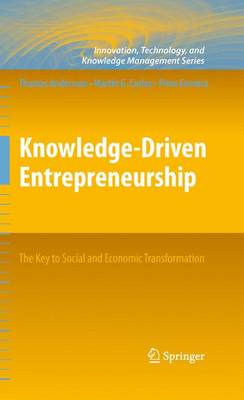Innovation, Technology, and Knowledge Management
1 total work
Knowledge-Driven Entrepreneurship
by Thomas Andersson, Piero Formica, and Martin G. Curley
Published 14 December 2009
The Springer book series Innovation, Technology, and Knowledge Management was launched in March 2008 as a forum and intellectual, scholarly “podium” for global/local, transdisciplinary, transsectoral, public–private, and leading/“bleeding” -edge ideas, theories, and perspectives on these topics. The book series is accompanied by the Springer Journal of the Knowledge Economy, which was launched in 2009 with the same editorial leadership. The series showcases provocative views that diverge from the current “conv- tional wisdom,” that are properly grounded in theory and practice, and that consider 1 2 the concepts of robust competitiveness, sustainable entrepreneurship, and demo- 3 cratic capitalism, central to its philosophy and objectives. More specifically, the aim of this series is to highlight emerging research and practice at the dynamic intersection of these fields, where individuals, organizations, industries, regions, and nations are harnessing creativity and invention to achieve and sustain growth. Books that are part of the series explore the impact of innovation at the “macro” (economies, markets), “meso” (industries, firms), and “micro” levels. (teams, indi viduals), drawing from such related disciplines as finance, organizational psychology, research and development, science policy, information systems, and 1 We define sustainable entrepreneurship as the creation of viable, profitable, and scalable firms. Such firms engender the formation of self-replicating and mutually enhancing innovation networks and knowledge clusters (innovation ecosystems), leading toward robust competitiveness (E.G. Carayannis, International Journal of Innovation and Regional Development, 1(3), 235–254, 2009).
